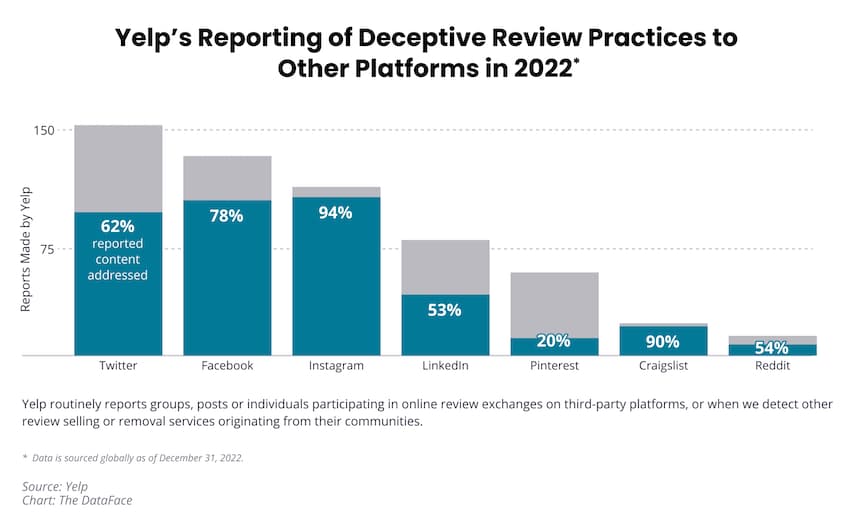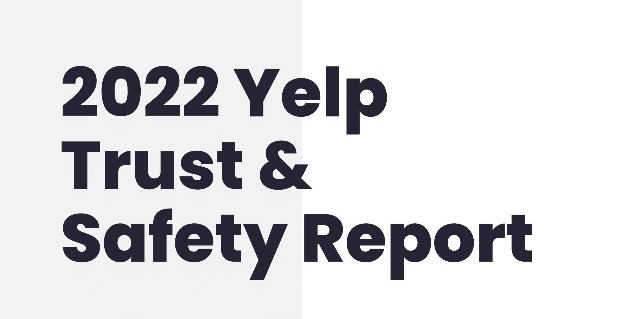In an ongoing effort to provide more transparency on how its local search and reviews engine works, Yelp has released its latest Trust & Safety report. It details how the company uses a combination of machine learning and human moderation to quell deceptive reviews, which is its own flavor of misinformation.
For example, Yelp shut down more than 77,400 user accounts in 2022 for violating its terms of service. These accounts practiced a variety of deceptive or abusive behaviors that created misinformation. It also removed more than 26,500 reviews that contained inappropriate or harmful content (e.g., hate speech).
“The trust and safety of the Yelp community is a top priority, which is why we continue to heavily invest in both technology and human moderation to fight deceptive review behaviors and level the playing field for all businesses,” Yelp VP of Operations Noorie Malik told Localogy Insider. “Yelp’s User Operations team is on the front lines of protecting the integrity and quality of content on Yelp. We take a very research-driven approach to help stop the spread of misinformation on our platform.”

Dark Patterns
In addition to removing bad actors, Yelp emphasizes its processes in preventing them from joining the platform in the first place. It rejected more than 32,800 new business pages last year due to spammy or deceptive behaviors. This can involve everything from outright fraud to dark patterns and black-hat SEO.
“Yelp’s User Operations team reviews each new business that’s added to the platform to help keep potentially deceptive businesses off of Yelp,” said Malik. “Over the years we’ve continued to evolve our measures to prevent businesses from creating fake, duplicate, or multiple listings with an intent to generate leads, dilute search results and/or gain SEO advantages.”
Interestingly, the processes that Yelp applies to detect such patterns go beyond its own walls. To get a more complete picture of nefarious intent, it sees what potential bad actors are up to elsewhere. In the process, it made more than 1,100 reports to other platforms to warn them about what it was seeing.
“We know that these deceptive behaviors aren’t always isolated to the Yelp platform,” said Mailik. “We regularly conduct investigations off the Yelp platform and report groups, posts and/or individuals participating in online review rings to third-party sites.”

Sheer Volume
Stepping back, this report works on many levels. The findings alone have value in terms of signaling the degree of attempted behaviors on Yelp, not to mention the level of policing that’s happening. But it’s also a signal to the world that Yelp is applying ample diligence to fighting misinformation on its platform.
That last part is key, as Yelp has been fighting PR battles since its inception in terms of maintaining its integrity as a trusted source of local business information. For example, there have been claims throughout the years that Yelp salespeople offer quid-pro-quo reviews for paid SMB accounts.
Altogether, such claims degrade Yelp’s standing as a source of local info. So it continues to fight those fires. Today’s report is one way to do that by shining a light on all of the diligence and investing it’s doing to keep the platform as a safe place, with local business information that can be trusted.
And that comes through in the report, especially in the sheer volume of bad actors it has kicked off the platform (or prevented from joining). For the full effect, you can read the report here, and stay tuned for more analysis on Yelp’s continued evolution as a local search and reviews platform.




